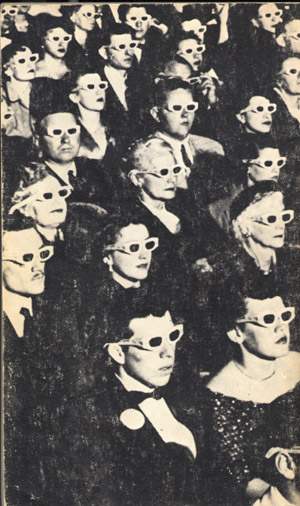
debord2.jpg, image/jpeg, 300x506
..

debord2.jpg, image/jpeg, 300x506
a reaction to 'black bloc head' and some more links:
this is not about "black blocs". ridiculing the discussion is disingenuous. this is a general discussion of tactics and structure - a discussion that always happens in any political movement. in fact, general discussions about organizational structure happen wherever groups of people are serious about "getting things done" - in business schools for example. there is no question that such discussions can be worthwhile. the real area of disagreement is around the question "who will participate in the discussion of tactics and structure?" and the still more contentious question - "who will participate in decision making about tactics and structure?" - 'black bloc head' evidently hopes that very few will. that is a standard authoritarian preference, something that business schools, Stalinists, Nazis, Corporatists, cops, military leaders, and all the assorted managers and bosses in our lives can agree about.
fortunately, not everyone objects to the very idea of confronting corporate structure and discussing decentralized alternatives to corporate structure. in fact there is a lot of constructive discussion about these very issues on NYC-IMC right now as the city tries to limit the power of the decentralized antiwar movement:
Groups Accuse City of Stifling Protest
NYPD to Use Containment Pens on March 20
letter to Newsday editor re: anticipated police use of steel pens
what they are practicing for: 1,000 arrests/day in August
Analysis of the NYPD's Use of Demonstration Pens
this issue about metal barricades, crowd management, "free speech zones" and "protest pens" is extremely important right now and it is likely to become more and more important as protests continue, and hopefully grow, this spring and summer - April 24th, Mayday, DNC July 26-29, RNC Aug 29 - Sept 4, and beyond. the police and other servants of the corporate military machine are understandably doing their best under the black cloud of such a calendar to force this movement into the most manageable and least effective shape - and they may succeed. but a lot of people are thinking about ways to prevent the neutralization of the movement. in fact even the main national organizing group for March 20, United For Peace and Justice, is facilitating the organization of many "feeder" marches, partly in order to prevent the police from forcing protesters into subdivided crowd control areas.
at this point it is widely recognized by antiwar activists that if we do not use our freedoms, we will lose our freedoms. if we do not use our freedom of movement, we will lose our freedom of movement. and if we do not plan to mobilize in more complex ways, we will be that much more easily contained, herded together, isolated as a body, and neutralized. use it or lose it.
there is always a zone of intersection between contending political spaces. that is the space of maximum contention. that is the place between the passive consumers and the "demonstrations" of dissent. on the one side it is risky to oppose the bosses and their wars. we hear ugly laughter. on the other side it is risky to question the goals and strategies of the main "protest organizers". we hear ugly laughter. on one side we suffer one tyranny and on the other side we suffer a lesser but more avoidable tyranny. the ugly laughter stops where the spaces overlap and sincerity becomes visible. that intersection of overlapping political spaces is where people's minds can change. that is where we achieve meaningful communication. our legislatures and halls of so-called democracy are supposed to be such spaces but fail to be. we find ourselves in the streets. our media is supposed to be such a space but fails to be. we find ourselves in the streets. surely the streets cannot fail to become such a space when other institutions have failed us. but although our achievements in public demonstration are precious and significant, we should know and discuss the extent of our failures too, even in the street, even when there are thousands of us. it is the great challenge of popular movements against tyranny to become and remain visible, to realize the potential for constructive spaces where the ugly laughter stops and contending viewpoints are engaged by minds that can change and bodies that can act. these spaces can be anywhere - in our legislatures, in our media, in our streets, but wherever they are they embody the ultimate threat against tyranny and that is why all such contested political spaces are immediately filled with police. wherever you find a line of police - that is exactly where such an overlapping political zone is being repaired. time after time we see the urgency of such situations for the police. a buffer zone between contending political spaces must be re-established as fast as possible no matter how much force is required to do so. cops, trolls, agents, and AM radio loudmouths all know what kind of space they are looking for and what to do there. they have exactly one message for you: leave this area. we win when they can't control us. we win when we find effective ways to organize our activity - new strategies, old strategies - strategies that identify or create intersecting zones at the boundaries of our political spaces, some already known to the cops but some as yet unknown - so that we can make contact and achieve change and reclaim and defend such spaces as they multiply.